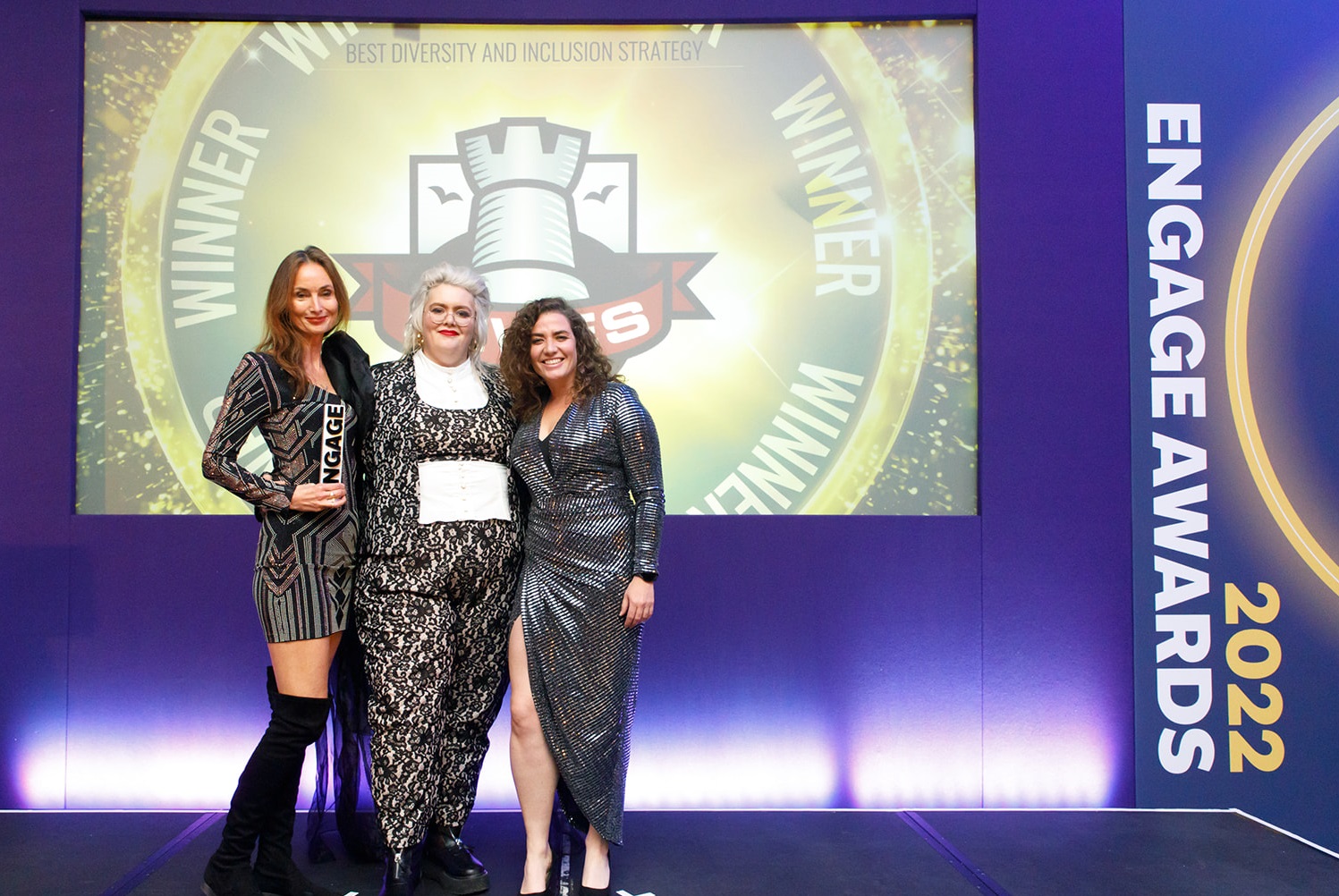How inclusive values can boost business

Brighton and Hove Albion Football Club explains how its strong values-driven approach has resulted in engaged employees, loyal fans, an involved local community, and has increased profits.
By Paul Barber, Chief Executive and Deputy Chairman, Brighton and Hove Albion FC
EMPLOYEE WELLBEING AT BRIGHTON AND HOVE ALBION FOOTBALL CLUB
The focus on employee wellbeing and ethical business is at an all-time high, and Brighton and Hove Albion Football Club are a clear example of how to
approach this in a well-rounded, effective way that both directly and indirectly benefits revenue.
This is achieved through a set of values through which all decisions are made, and all achievements are measured by. Paul Barber, Chief Executive and Deputy Chairman at Brighton and Hove Albion FC, explains: “Our brand values really revolve around four key things: treating people well, exceeding expectations, aiming high, and making whatever we do special. These behaviours drive our business, they define the behaviour we expect from our employees, our suppliers, and partners; they inform our decision-making, and they set expectations for the whole organisation.”
IMPLEMENTING A STRONG SET OF VALUES EFFECTIVLEY
Barber says that the values are implemented effectively because they come from the employees themselves. “They were devised through a consultative
process involving many of our staff, different suppliers, and different stakeholders in the organisation. When people have a very clear set of values by which they can work and live their lives within an organisation, then the standards that are expected of them and the way they should conduct themselves is very clear.”
He explains that staff also understand that when these values aren’t upheld there are consequences. “It certainly doesn’t make us perfect, we still make
mistakes, but it means that we don’t shy away from making tough decisions either. We’re prepared to live and die by our values, and when our partners
don’t live up to the way that we wish to operate then we make changes.”
One of the key focuses of the brand values is to increase employee engagement and wellbeing. Every single staff member is included in the bonus structure, which sets Brighton and Hove Albion apart from most football clubs. “A lot of professional clubs will have bonus structures for the athletes designed to drive high performance. What we found was that our employees were not motivated or incentivised in the same way, and there was a disconnect between the athletic side of the club and the administrative side of the club.”
The club addressed this divide, and worked to narrow the gap. “Three years ago, we implemented a programme where all staff benefit from the success of the team on the pitch. Employees were entitled to 20% of their annual salary when we got promoted to the premier league, and since we’ve been in the premier league employees are entitled to 10% of their base salary plus 2% more for every place we finish above the relegation zone. This both motivates our non-athletic staff to support the athletes the best they possibly can, in every way that they can, and when those athletes are successful then all of our employees share in the financial success that we have.”
However, this bonus does still need to be earned. “At the end of the year that bonus structure is reviewed against the values, and if employees haven’t lived the values throughout the year then they lose percentage points from their bonus.” He says that this is “designed to unify the spirit in the club as much as the performance,” and has proven a success.
WORKING TO CONTINUALLY IMPROVE EMPLOYEE WELLBEING
The club also introduced a healthy eating programme, and provides free breakfasts and lunches to all staff. Barber says this has the dual benefit of “driving better performance for everyone” by increasing staff health, and increasing the “sociability” of the club between different departments, growing the team culture and morale. “We spend a lot of time thinking about how we can make our working environment better, and how we can improve the performance of our employees through that environment.”
Barber adds that due to the “unique geographical position” of the club, they are “very committed to equality, inclusion, and diversity” for both fans and employees. He says: “We feel that in a city as diverse as Brighton we need to reflect our community and our population, and we do that as best we can.”
BOOSTING BUSINESS WITH VALUES
Furthermore, the values of ‘treating people well’ and ‘making it special’ entwine in the way Brighton and Hove Albion approach the fan experience. When visitors arrive on ‘special’ days, such as Mother’s Day, Father’s Day, special birthdays or anniversaries, or a child’s first game, they can expect a little gift “waiting for them on their seat when they arrive to commemorate the occasion".
Barber continues: “It tends to be football’s way that visiting fans are made to feel unwelcome, but our policy is a little different. We will import their local beer, if there’s a special food type that they enjoy we’ll prepare it. We sell their merchandise, we show their goals on our screens inside the concourse area where the away fans gather, we might light the concourses in their colours if they are different to ours, and we just try to make them feel as welcome as possible.”
He explains that this has multiple positives affects. “We find that our staff are treated with more respect, the visiting fans spend more money, we have less damage to our stadium, and everyone goes away win, lose, or draw, having had a great day,” he says. “This is better for our business, it’s better for our employees, and we think it goes towards making for a better game, and this is something that we’ve now been doing for eight years."
In addition, the club works to maintain a positive relationship with the local community. “We are very committed to the local economy and we are a major
employer on the south coast. We already employ nearly 1,000 people around each of our match days; we try and engage as many local firms as we can as
we can for supplies for the stadium, local workforces to maintain the stadium, and any additional building work that we do.”
This also extends to more personable investments. “We engage with over 50,000 members of the local community each year through our club’s charity,
Albion In The Community, in different programmes to improve their health and wellbeing, to educate them, to support schools’ programmes, and increase the number of people, both able-bodied and disabled, participating in football.”
Nevertheless, he explains that these decisions are not purely altruistic. “This is a very big part of the way we build our brand and reputation, and it has a great way of paying back. We tend to get an increased level of loyalty from our supporters, many of whom have family and friends who have engaged in our programmes in the community, and by boosting the local economy we help to keep people in jobs, which in turn means they are able to afford to come to
football matches.”
“There is a business reason for us wanting to run the football club this way, but we feel it’s important. We’ve got a high profile, which helps us to promote what we do very easily, and we feel it’s a good way to set an example that others might follow.”
JOIN US AT THE EMPLOYEE ENGAGEMENT SUMMIT
The 2023 Employee Engagement Summit will explore how ensuring effective wellbeing and inclusion of your employees, can in turn be a huge investment for your business, for both revenue and retention. Book your ticket today.




